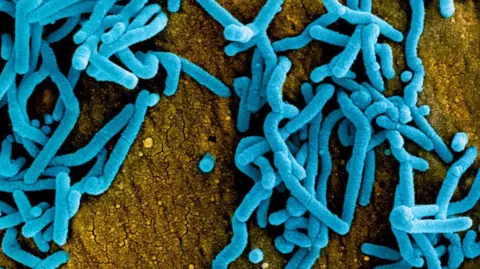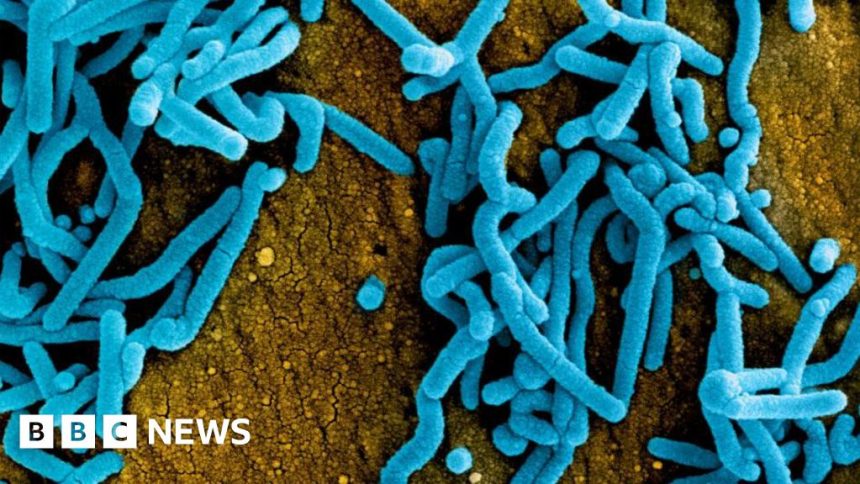New suspected Marburg outbreak in Tanzania kills eight – WHO
 Getty Images
Getty ImagesThe World Health Organisation (WHO) has warned of a suspected new outbreak of the Ebola-like Marburg virus in north-west Tanzania, saying that at least eight people have already been killed by the disease.
On Tuesday, the WHO said that nine suspected cases of Marburg were reported in the region of Kagera over the last five days.
“We would expect further cases in the coming days as disease surveillance improves,” WHO chief Tedros Adhanom Ghebreyesus said on X.
The highly-infectious disease is similar to Ebola, with symptoms including fever, muscle pains, diarrhoea, vomiting and, in some cases, death through extreme blood loss.
Tanzania experienced its first Marburg outbreak in March 2023 in the Bukoba district. It killed about six people and lasted for nearly two months.
Tanzania’s authorities have not yet confirmed the latest outbreak.
The WHO reported that patients, including healthcare workers, have been identified and are being monitored.
It added that the country’s rapid response teams have been deployed to help identify suspected cases and contain the outbreak.
The WHO cautioned that the risk of the virus spreading in the region remained “high” because Kagera was a transit hub with much cross-border movement to the Democratic Republic of the Congo, Uganda, Burundi and Rwanda.
“We do not recommend travel or trade restrictions with Tanzania at this time,” Dr Tedros said on X.
The WHO said the global risk posed by the outbreak was “low”, and there were no concerns at this stage of the disease spreading internationally.
In December, neighbouring Rwanda declared the outbreak over in the country after the virus infected 66 people and killed 15.
On average, the Marburg virus kills half of the people it infects, according to the WHO.
In March 2023, Tanzania’s Bukoba district experienced its first Marburg virus outbreak, which killed about six people and lasted for nearly two months.
The Marburg virus is transmitted to humans from fruit bats and then through contact with bodily fluids of infected individuals.
There are no specific treatments or a vaccine for the virus, although trials are happening.
You may also be interested in:
 Getty Images/BBC
Getty Images/BBCGo to BBCAfrica.com for more news from the African continent.
Follow us on Twitter @BBCAfrica, on Facebook at BBC Africa or on Instagram at bbcafrica







